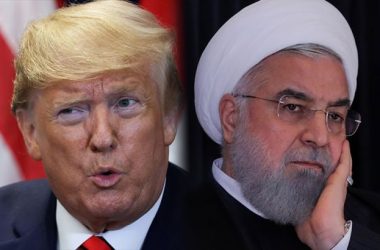
I put pen to paper (or fingers to keyboard) in response to brother Madi Jobarteh’s passionate support of Gambia’s striking junior doctors.
Madi’s thesis in support of the doctors’ strike has moved beyond the specific complaint about the Health Minister’s utterances, but I would like to start with my brief comments here last week before I look at Madi’s two main points.
My comments last week were as follows:
“The Minister’s statement was bound to offend. But now the Minister has gracefully apologised in clear and unambiguous words. I now urge our professional doctors to equally gracefully accept that ministerial apology humbly offered and return to caring for their patients”.
Madi Jobarteh supports the doctor’s strike actions on two grounds:
That the doctors’ have a “constitutional right to protest”.
In Madi’s own words that “It is not until these doctors went on strike that we have seen the Gambia Government now speak a language of solving the issues in the health sector. Thus without this action it is clear that the Government will take a long-time, if ever at all to focus on and address the issues in our health system.
Madi’s first point first. Approaching the matter from a long held personal principle, I will state that a “right to protest” does not necessarily mean strike action that would seriously impinge on other people’s rights and well being.
I grew up in a school in Nairobi that is famous for its discipline (Starehe School which Gambia’s own current Chief Justice did visit as Attorney General in the 1980s). The lawlessness and disorder that characterises Kenyan schools was and still is anathema at Starehe. Ten years after Starehe, I was a teacher in a London school when the staff decided to strike against Mrs. Thatcher – with the children’s education as the “collateral damage”. I pleaded with my colleagues, in vain, that we should take it in shifts to protest every evening infront of Parliament or 10 Downing Street but to no avail. The strike went ahead, I ignored it for the whole week and came to teach – and got thrown out of the National Union of Teachers! That was 30 years ago. To my mind, today’s striking Gambian doctors would have more sympathy from the general public if they protested and demonstrated about their grievances without impacting the well-being of their patients through a working hours strike.
A “protest” may indeed be a constitutional right as Madi states, but strikes are forbidden in critical services where the lives of fellow citizens is put at risk (I understand that death rates at Gambian hospitals have spiked as a result of the current strike).
UK soldiers and police officer have no right to strike – and I am sure Madi would not suggest that Gambian soldiers and police officers have a “constitutional right to strike”.
Here in UK junior doctors went on strike in 2016 and a debate ensued whether or not a law should be passed to ensure that doctors never strike – no action has been taken yet.
Similarly, the London Fire Brigade went on strike a few years ago – and one dreads to think what would happen if another Grenfell Tower fire happened during a strike. I would argue that the military, the police, doctors and fire service should have no right to strike at all during their working hours – though I see no problem with protests and demonstrations that do not interfere with service to the community in anyway.
Madi’s second point can be taken shortly. Firstly, it was infact the Minister’s statement expressing, in rather unfortunate terms, the government’s determination to deal with the problems in the health sector that caused the doctors resentment and the ensuing strike.
So it is not true for Madi to say that the problems would not have been addressed without the doctors’ strike.
Secondly, a prolonging of this strike is more likely to make things worse in the health sector if relationships between the young doctors and the hospitals’ management (and the Health Ministry) break down.
There is also the possibility that every little disagreement in the health sector will henceforth be dealt with through a strike – similar to the one that the doctors are engaged in now. One could also wonder whether doctors would continue to be committed to what would become hostile hospital environments – or will we lose doctors that have been trained for many years at enormous cost to the country?
In my humble view, the doctors’ professional calling requires a non-striking environment in which doctors are well respected, listened to carefully – and highly paid.






By Gambian Outsider. Now, here is a well reasoned article that makes a distinction between the right to demonstrate and strike. Brother Jobarteh among others sometimes talk about constitutional rights as if they are absolute. Even at times, too, when brother Jobarteh made it known that no constitutional right is absolute, he would immediate turn around and write things that undercut his true statements that no constitutional right is absolute. I am always baffled whenever he makes such a move. Who knows, may be this time, brother Jobarteh, is confusing the right to demonstrate and strike. Well done Mr. Halake!
Hi Dida Halake,
You stated in your last paragraph – ‘In my humble view, the doctors’ professional calling requires a non-striking environment in which doctors are well respected, listened to carefully – and highly paid’
Do the Gambian environment fulfil the above ingredients which as premised in your statement can guarantee a ‘non-striking environment’……?
For the sake of comparison between UK & Gambia which you also use to highlight your point on strikes by teachers, how many Gambian Doctors can one UK doctor pay from their one month pay check? This does not take account of the conducive working environment they operate in contrast this with the state of the working environment of Gambian Doctors. I believe, the results will make it clear that for humanity’s sake, Gambian Doctors have been putting up with enough avoidable work stress and do not deserve another source of stress that can easily be avoided if the leadership has what it take to lead. Keeping the politicians free from public scrutiny and sacking when they created the conditions for such, will only lead us to impunity of leaders.
It is clear fact that leaving the said minister in the health sector will not make the working environment healthy for efficient delivery of the much needed service. The environment is already too toxic for healthy co-operation and team work. Sadly, it is the poor who will bear the burden as the powerful never sought treatment in our treatment centres, so solving the issue or not does after all not affect them directly.
Encouraging irresponsible and arrogant leadership styles or behaviours is cancerous to our common good.
A similar situation recently pushed the teachers to strike but forced to go back to the classroom after issuing threats and divide and rule style (not all teachers are striking) and I can take good guess that a lot of the reasons for their strike still remain unsolved. This is different from a whole badge of new teachers trained by an organisation at The College and graduated over a year ago and serving in Gambian schools but have still not been paid one salary. How much more patience do we require our work force to endure before they are given a deserving treatment and encouragement. Such issues are the recipes for youth migration!!! Imagine the signal this whole episode of strike and condescending attitudes of those who should swiftly address them to avoid harming the public will send to the younger generation? Medical students at University for instance. This are the people who chose one of the most hardest and longest disciple to study and have ignored other options which can earn them quick wealth just so to serve the public, having
them disgraced before their colleagues from elsewhere will certainly rub off (from those aspiring to become like the Doctors ) a good degree of the hope of job satisfaction and respect by the authorities.
Attention is now centred on the short term impact of the statement of the minister and strike (understandably on the sick) but do we consider the long term impact on the minds of the younger generation? Yet it is our authorities who very recently were calling on Gambians diaspora to come back home!!! Leaders should always remember that their words travel fast and wide but their actions and inactions travel faster and wider. Come home to develop our motherland is a good statement but how one handles/treat the ones already on the ground and those who returned recently is in fact what can make able diaspora population consider coming home. GRTS suspending a show by returnee Gambians just for protecting the personality of under-performing public servant from disgrace/public scrutiny does equally send a wrong signal to others thinking about returning consequently keep the under performance unchecked. If we truly mean our utterances we should guard them by acting accordingly.
The minister may have some good skills the country could benefit from but her actions/inactions have shown beyond doubt ministerial position may not be right for her at the least the all important health sector.
In many societies,once a public servant makes such a blunder and admitted acting unprofessionally and without facts, common sense and decency will lead one to resign immediately after the apology. But in our situation, no. Back door deals to gain support against the rest, giving out charities, seeking prayers or even visiting ungodly marabouts to help keep one’s position while its self as well as public knowledge that one is at fault. We need to grow up so that we can hope of creation the conditions for our children to be free of risk of running away to other lands in the hope of a better life.
Respect Bambo, much respect.
1. I agree with you that this statement of mine is a dream: ‘In my humble view, the doctors’ professional calling requires a non-striking environment in which doctors are well respected, listened to carefully – and highly paid’.
2. I agree with you that the environment MAY “already be too toxic for healthy co-operation”.
3. I agree with you that the Minister’s comments were wrong.
4. And I agree with you that doctors have spent many years in training to serve humanity and deserve utmost respect, appreciation – and proper pay – for the service they provide to the country.
But, and this is the sad part that is central to my argument, fellow human beings are dying as a DIRECT result of the doctors strike (and as an INdirect result of the Minister’s unfortunate comments). My position is that no fellow human being should ever die or suffer because of a doctors’ strike – whatever the provocation from the Minister: that is your Oath as a doctor. When 30 years ago my fellow London teacher argued that “Mrs. Thatcher has demoralised teachers and we must strike” I responded thus: “Mrs. Thatcher can starve me but she can never demoralise me as a teacher”.
Thank you for your comment and I hope I have given it the respectful response it deserves. I wish the doctors could go back to work now; this moment.